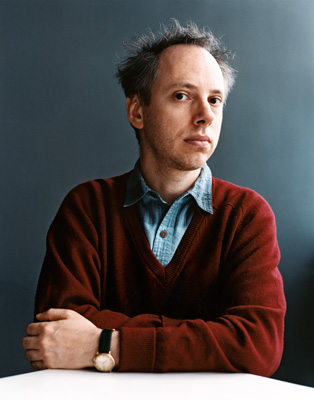Todd Solondz: All’s Fair in War

SHIRLEY HENDERSON IN LIFE DURING WARTIME
Todd Solondz is not a freak–he just likes to make movies about them. The director first won over critics with 1995’s Welcome to the Dollhouse, a darkly comic portrayal of suburban teen angst. His next release, 1998’s Happiness, took things a step further with its unflinching depiction of pedophilia and rape. Understandably, the film polarized audiences and cemented Solondz’s status as Hollywood’s premiere weirdo. This month, Solondz continues the controversial story of Happiness with his latest film, Life During Wartime (out Friday). We spoke to the director about the issue of censorship, human nature, and why he thinks so many people hate his guts.
RYAN O’CONNELL: Life During Wartime is being touted as a quasi-sequel to Happiness. What’s the nature of the continuation?
TODD SOLONDZ: Well, the storylines that were established in that movie continue somewhat in this one, but all of the characters have been recast. So you have to look at this afresh. You don’t need to have seen Happiness in order to follow anything in Life During Wartime but in certain ways, there are plusses and minuses to being familiar with Happiness.
O’CONNELL: You’ve had difficulty getting your films made before. How do you deal with censorship and compromise?
SOLONDZ: Compromise is part and parcel of making a movie. It’s a question of the kinds of compromises that you have to make. With this movie, I ultimately got what I wanted. The substance is there. The cast is there. I’m happy with the movie.
O’CONNELL: Have you ever made a compromise that didn’t sit well with you?
SOLONDZ: No, actually. That is why my movies are so low budget. There was a point where I could have made this movie earlier with a different cast but it was a cast I didn’t feel comfortable with so I chose not to make [it then].
O’CONNELL: Some critics only see you as a reflection of the characters in your films. They’ve called you and your work misanthropic. What would people be surprised to learn about you?
SOLONDZ: I don’t know. You know, if it’s not one epithet, it’s another. Even if you want to argue the point that my work is misanthropic, it’s reductive. The work as I see it is a bit richer, and fraught with too much ambiguity to reduce it to misanthropy. But I see things differently from how others do.
O’CONNELL: How autobiographical are your films?
SOLONDZ: I suppose there’s some sort of autobiography–even if none of it ever happened. Perhaps it’s ironic that I actually have no interest in the subject [of pedophilia] in and of itself. For me, it is a metaphor for that which is most ostracized, loathed, feared, and to what extent people can accept another person’s flaws before they become demonized.
O’CONNELL: Why do you think people feel so personally offended by your work?
SOLONDZ: Well, you know, I deal with very delicate subject matter. The movies are comedies and yet they’re very sad sorrowful comedies and it’s a very fine line that I navigate. I think it’s a question of sensibility. They’re just not for everyone and that’s OK. I think that movies are tricky. If you watch the movie alone, you have one experience. If you watch it with an audience and people laugh, the dynamic is very tricky. Is it laughter that you hear? Is it laughing at the characters? Is it laughing in sympathy or in understanding of these characters? Is it laughter showing off that you get a joke that you want to telegraphic to your neighbor? I think we’re very finely in tune to the different kinds of laughter and not all of it is laughter that I seek out.
O’CONNELL: What part of human nature interests you the most?
SOLONDZ: I don’t really have it quite so fine-tuned that there’s a single part. It’s just the human animal that we all are, the capacity for kindness we have just as much as we have the capacity for cruelty or evil. The best of us are able to suppress those baser instincts and it’s a constant struggle. We find ourselves in moral quandaries every day, at every moment, and decide to what extent that we’re complicit.
O’CONNELL: What’s up next for you?
SOLONDZ; I’m prepping a movie now called Dark Horse. It has all different characters and the only thing I can say is that there’s no child molestation, no rape, and no masturbation.
O’CONNELL: Wow, that’s new for you.
SOLONDZ: There you go.






